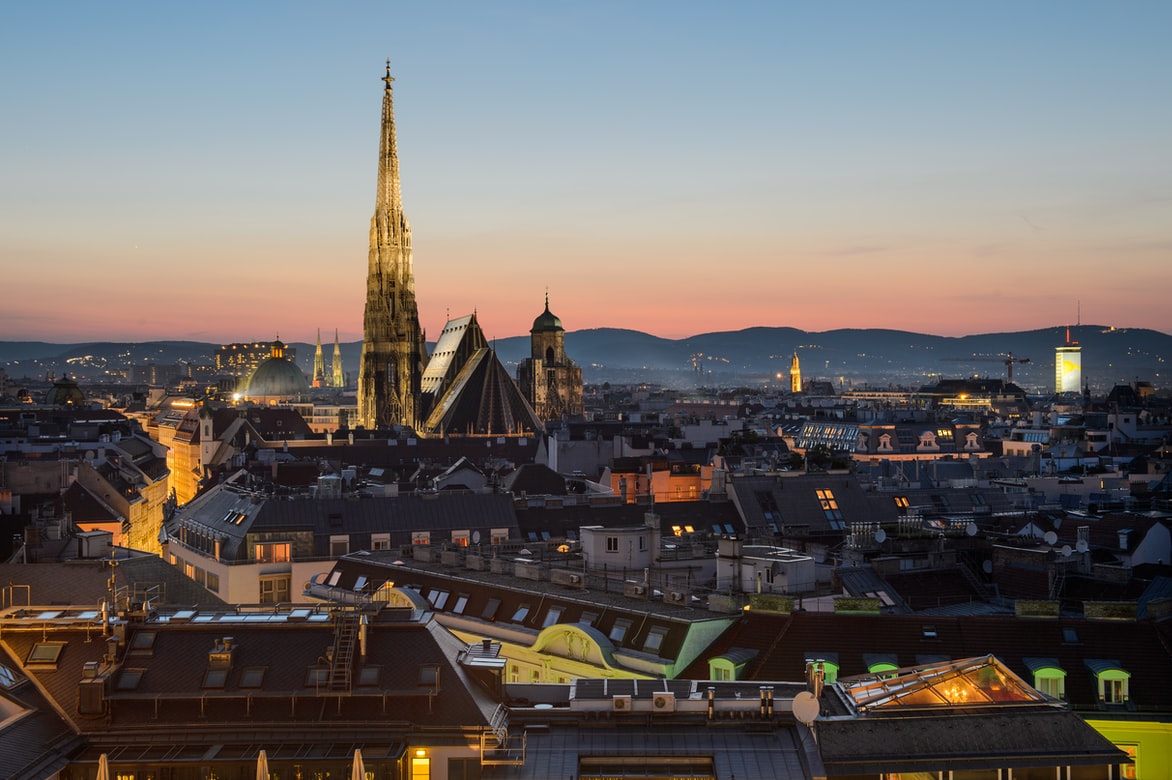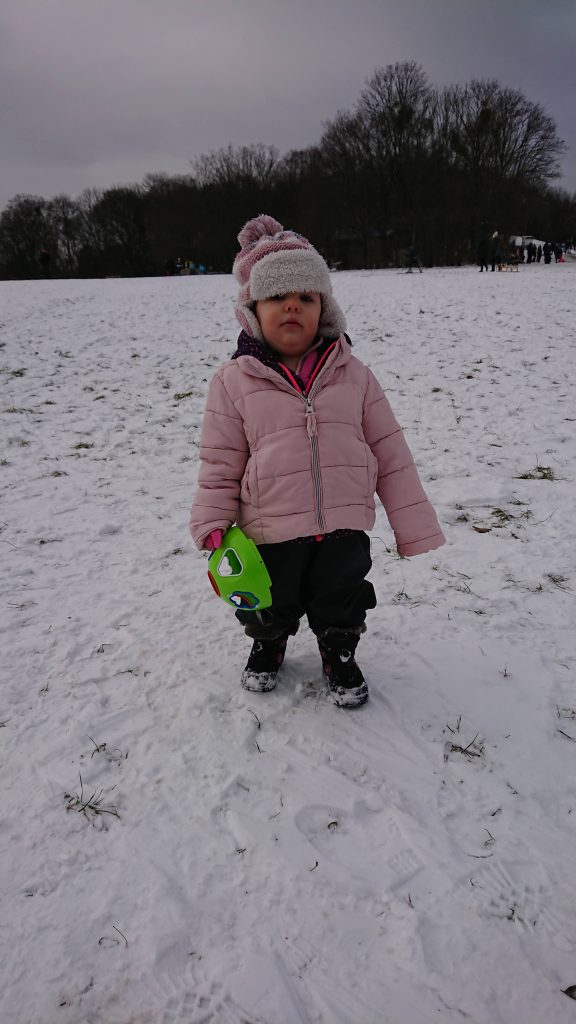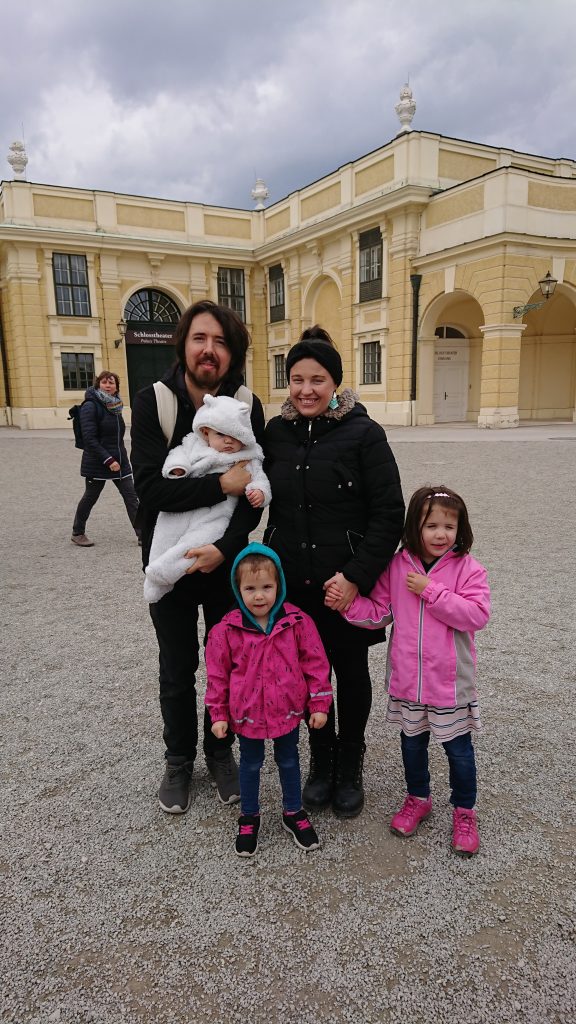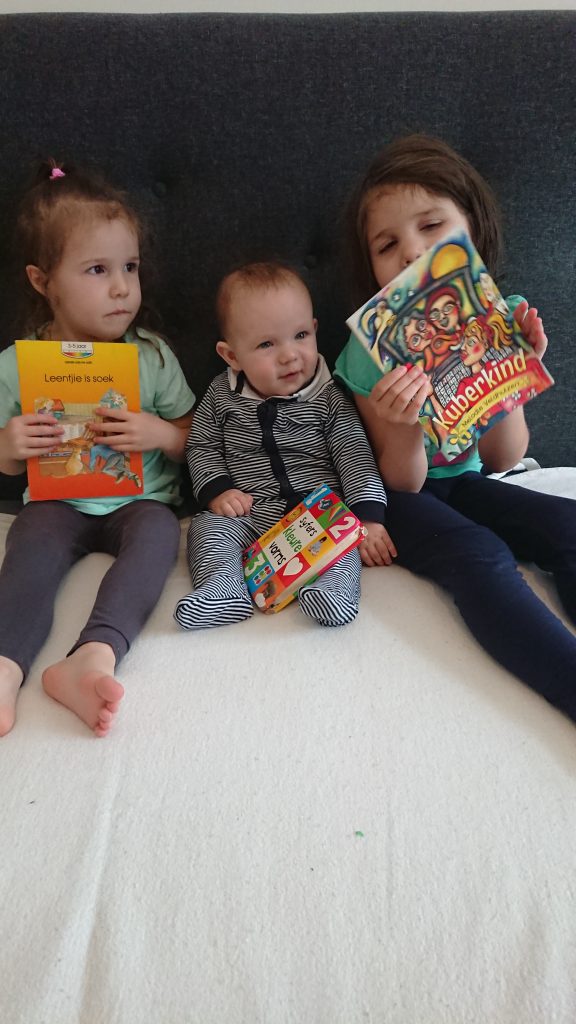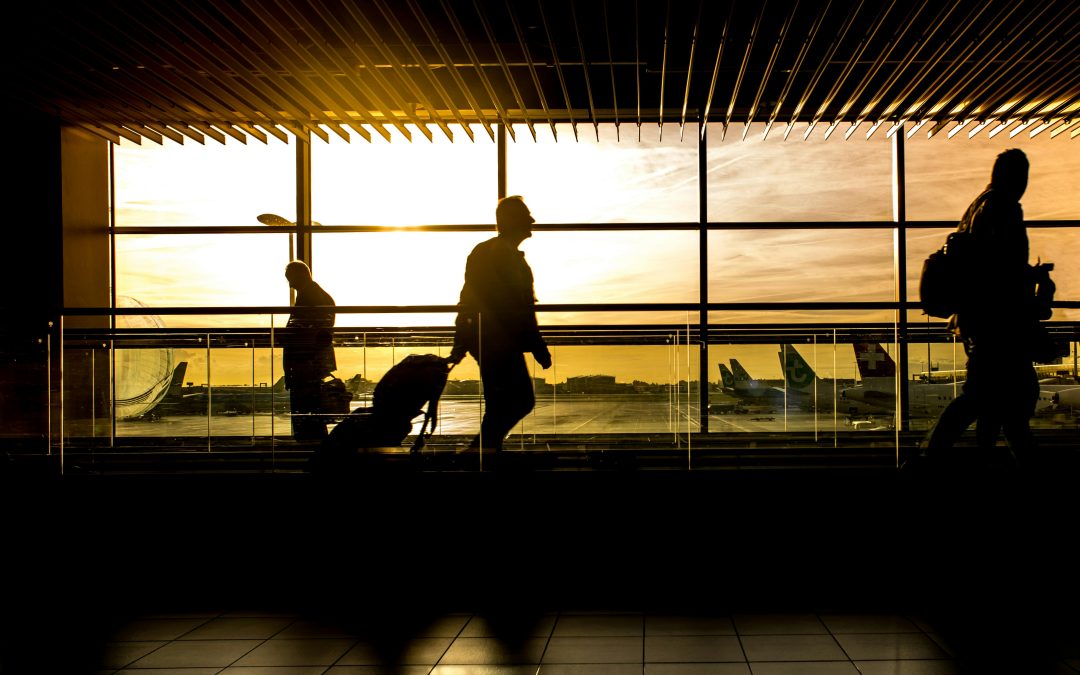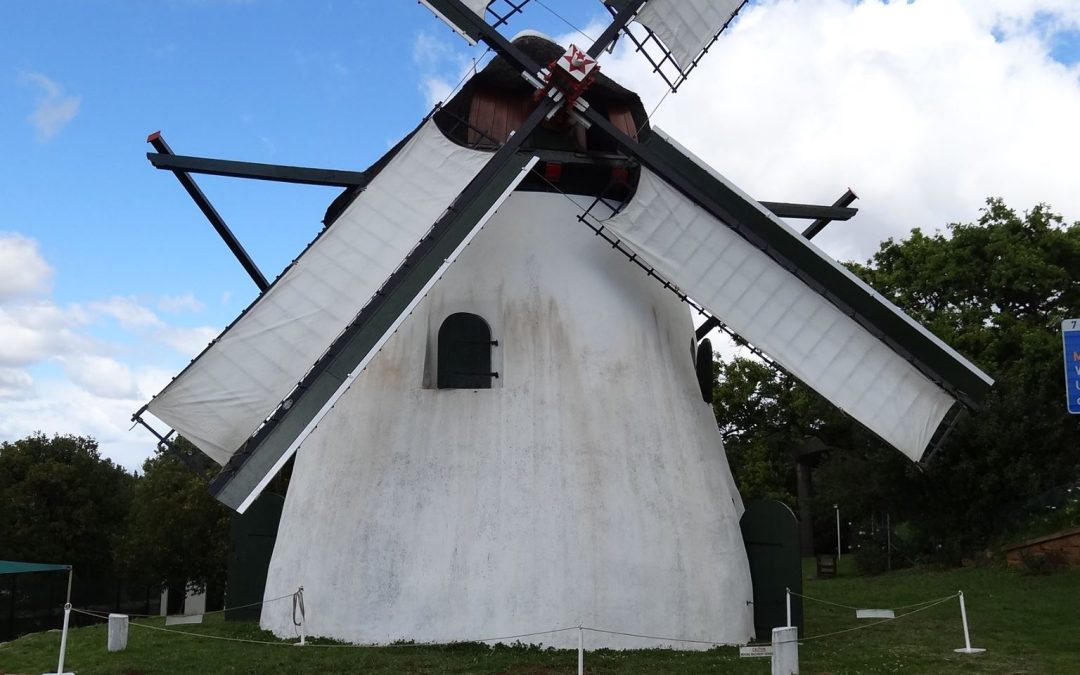Out and About is a column in which we chat with people who currently live abroad, or who used to live and work there. This week we chat with Ylodi Groenewald about Austria and how they enjoy the South African snacks they get at their church.
Hello Ylodi, thank you for the email. Tell us where you live and what made you choose that destination.
Our family of five (me, my husband, our daughters aged five and three, and our seven-month-old son) have been living in Vienna, Austria, for the past three and a half years. We were only three when we arrived here. The youngest two were born here in Vienna.
We had a few requirements when we started to think of moving overseas: the country had to be safe; it had to be in Europe; it should have a well-structured public transport system and the culture should not be too foreign for us. A good public transport system was something that was especially important for me, as I have a visual impairment and have always been dependent on other people to drive me around – not being able to do so myself. My husband, who is an electronic engineer, considered positions in among others Italy, Switzerland, and other parts of Austria, but eventually signed a contract with a company in Vienna.
Austria has a rich culture, what stood out for you when you first arrived there?
Austria’s rich cultural history is one of the things we value most about the country. We all love music, especially classical music, for which Austria is well-known. Unfortunately, we were not greeted with beautiful music by Mozart or Strauss when we landed at the airport, but rather by a few “surly, unhelpful and unsympathetic” Austrians. These first impressions of Austria were definitely not what we had expected. Through the years we have learned that the stereotypical unfriendliness of the Austrians is in fact just pride – of their country, language and culture.
You are very aware of the historical buildings adorning the city around every corner, buildings that tell a story and that preserve the stories and history of hundreds of years within their walls.
When our children are a little more grown up, we would like to take them to watch an orchestra or to attend a real ball.
But for now, we are content to watch the buildings from the outside and read up on its rich history.
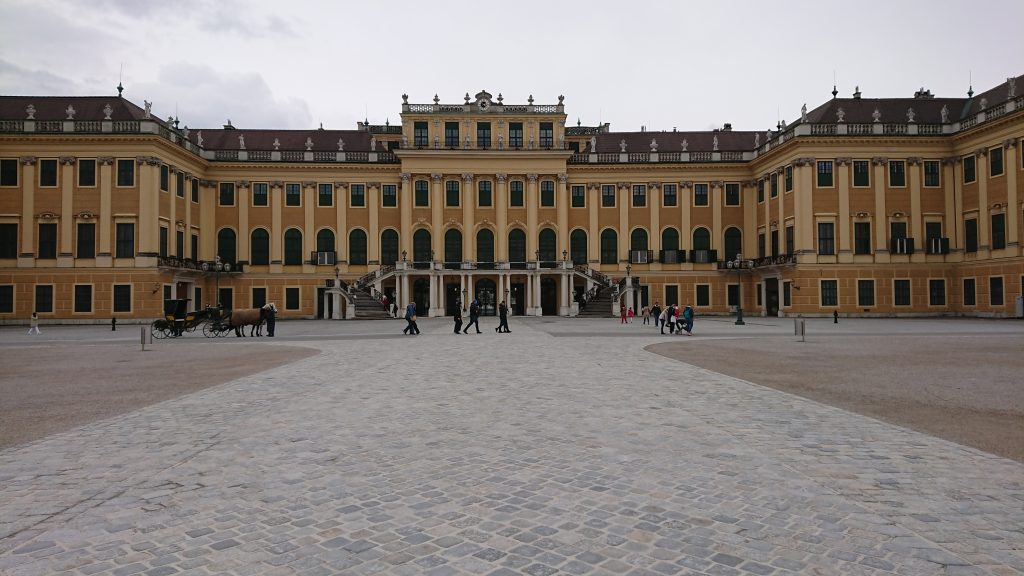
How did you experience the emigration process? What were the emotions you experienced?
It was actually a very swift process for us – from May to October. All the logistic arrangements together with the emotional goodbyes took its toll. The first few months in Vienna were very hard. It started with a 13-hour long flight with a toddler, a soaking wet Vienna when we landed here, a taxi driver who could not understand us, the time change from summer to winter on the day we landed, and a sudden change of Airbnbs due to a faulty heating system.
There was also the search for permanent accommodation, the birth of our daughter a few months after our arrival, as well as illness, an ice-cold winter and the endless frustration with the language we couldn’t understand or speak. Only later did we join an Afrikaans church and with their support, things started getting better.
Are there any South African shops near you where you can get comfort food like biltong?
Unfortunately, there are no South African shops here in Vienna, but there are a few shops where we can find a few old favourites. My favourite is Mrs Balls Chutney. I usually buy a few bottles to stock up whenever I get the chance. Products like rooibos tea are more readily available. We have learned to make do with the things we get here, but we do enjoy the South African snacks prepared by the congregation members at church once a month. I am not a very keen cook, but I have occasionally made bobotie and milk tart.
Tell us about your job and what a typical day in your life looks like.
At this stage I am a homemaker and my youngest son, who is seven months old, keeps me quite busy. Every morning I take the two older children to preschool, do the shopping, and finish my chores at home before picking them up from preschool again. I walk everywhere I want to go or use public transport. With summer approaching, it is so nice to walk around the neighbourhood or to go for a quick late-night jog around the block. I will continue my studies in Psychology at a later stage. Luckily it is very inexpensive to study here.
What did you do to find your feet and make friends?
We are currently part of an Afrikaans church (they have a church service once a month) as well as a German church, where we were able to build relationships with people. Because Austrians are very private people, it is not as easy to build lasting friendships, but we have been able to build good relationships with our neighbours and some of the parents at the preschool. It is very important to be able to speak the language of the country you live in.
Everything just got so much easier for us once we started communicating in German.
The Austrians appreciate it when they see you are at least trying to speak German, even if you still make many mistakes. We were forced to learn German quickly, as most Austrians do not speak English at all.
How do accommodation options in Austria compare with that of South Africa?
It is very expensive to stay in Vienna. Most people stay in flats and share a garden. The average flat here has two to three bedrooms, a small living room, kitchen, bathroom, and a lounge. On average you pay 100 euros per 10 m2. Accommodation in the smaller towns is obviously cheaper, but then it takes you longer to reach the city centre. There are also many hidden costs we weren’t aware of when we got here. The tenant pays the estate agent’s commission, which is usually equivalent to two months’ rent. Gas and electricity are also quite expensive, and you also have to pay operating costs (amongst others for the maintenance of the building).
Is it expensive to live in Austria?
Most things in Austria are more expensive than in South Africa. We pay a lot of tax, but we also have many benefits. Public health services and education are free and there is also a large variety of places with free access, such as parks, outdoor play areas and nature reserves. I think you get a lot more value for your tax money here compared to South Africa. Any private services are very expensive, as well as private preschools or schools.
What do you miss most about South Africa?
Although we are very happy in Austria, there are certain things unique to South Africa that you cannot get anywhere else. We miss the sea and the wild animals, braai fires and “lekker boerekos”. We miss thunderstorms and Wimpy coffee. We miss our family and friends and to be able to spontaneously have conversations in Afrikaans. We miss the fact that we cannot tell the children this is OUR country. But we are busy growing our roots in this new soil that has been lent to us, and we hope and believe that we will be able to preserve our Afrikaans culture here in a foreign country and share it with the generations after us.
Is there anything else you want to share with us?
I can compare our emigration with walking out of a relationship and realising that you have to close that chapter of your life. Sometimes you want to go back to what you know and what you are used to, but then we realise that the unknown and the new life we have chosen is better for us. It is wonderful to know our children are safe and that they have so many opportunities to be outside. We are surrounded by forests even though we live in the city. We can walk to the forest in ten minutes. What I find especially nice, is the fact that I’m able to move independently and go wherever I want. I wish every person with a disability in South Africa can experience the freedom and independence I have here. I cannot imagine returning to South Africa. This is our home now, even if it is just a borrowed home.

